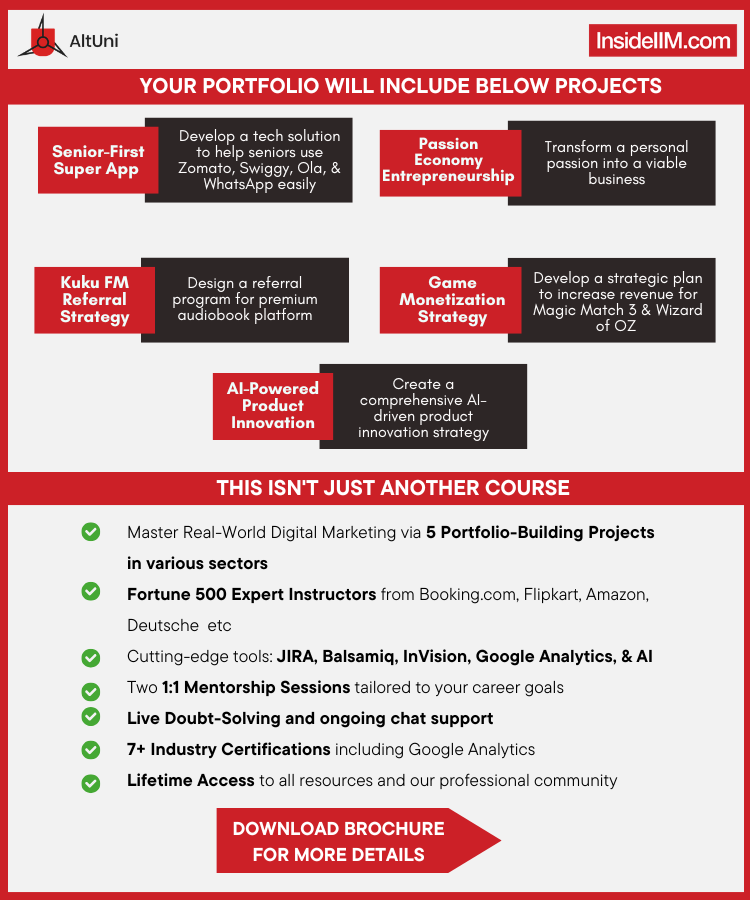If you're someone who self-admittedly can't write a single line of code or reset their home’s Wi-Fi router - Can you land a high-paying Product Management job at the UBERs, Microsofts, & Swiggys of the world? Yes, in a nutshell. So, imagine you're interviewing for a PM role at a top company. Given your lack of technical background, a question that is bound to arise is - "Product managers must work closely with engineers to develop and ship world-class products. How do you deal with that aspect of the job, given you don’t have a technical background?" Don't worry if you're not sure about the answer - we've got you covered. Continue reading to find out.
Do Non-Technical Product Managers Have a Future in the Tech Industry?
A lot has been written about what product management is and what a product manager does. There’s no better way to explain product management than entrepreneurship. Why? Product managers are like mini-CEOs who must do everything possible to make their product successful. In today's world, it's easier than ever to build new products, but much harder to build successful businesses from them, putting the spotlight on the role of the product manager.
Master Real-World Product Management Via 5 Capstone Projects for Top Brands. Expert Content, 1-on-1 Mentorship & Live Support to Build Your Portfolio | Apply Here
This raises a question many people ask: Aren’t product managers supposed to be good at technical stuff? While the answer is no, it's not that straightforward.
What Key Skills Do Product Managers Need? (Coding Isn't One of Them)
As a relatively young field, Product Management is still in the process of defining itself, with responsibilities that can vary significantly from company to company and project to project. Despite this uncertainty, there are a few key skills that are consistently important for Product Managers. Over the years, we’ve had multiple PMs with vastly different backgrounds on our platform, giving us an inside look at what these key skills are.
Their insights clearly indicate that anyone can become a product manager and that an MBA or technical background is NOT required to start a career in product management.
We’ve even asked ChatGPT, in its infinite wisdom, to list out a few key skills required for Product Management:

We would like to add another point here: Sufficient Technicals. Why?
To be an effective Product Manager, it's important to have a solid understanding of technical aspects related to your product and the team. This knowledge can help Product Managers gain a better understanding of the product's context and possibilities.
For instance, if a PM is working on a fintech platform, knowledge of the underlying technologies can aid in making informed decisions. Moreover, understanding the technical limitations of engineering and design partners can aid in forming a strong partnership, mutual respect, and effective communication among the team.
The good news is that once you've covered the base with all the core skills required, the rest of the formal product management skills, such as working with engineers and designers, wireframing, sprint planning, and execution, can be easily picked up.
Create a professional portfolio showcasing real-world solutions, develop AI-ready product management skills, access 2 exclusive mentorship sessions, and earn 7+ industry-recognized certifications!
Summing It Up
Breaking into product management is not like any other job — there are no direct routes to the product team. Unlike most skills, which can be learned through books and YouTube videos, learning product management requires you to build products or solve problems. Regardless of your industry or background, getting your hands dirty with industry projects and experiencing the product development process firsthand is one of the most effective ways to break into this role.
What can also help here is enrolling in a certificate course that will help you develop sufficient technical skills and make sense of each step involved in product development. If you can afford an MBA program and wish to study, go ahead. But the truth is, an MBA is not necessary, and if you want a better return on investment,


